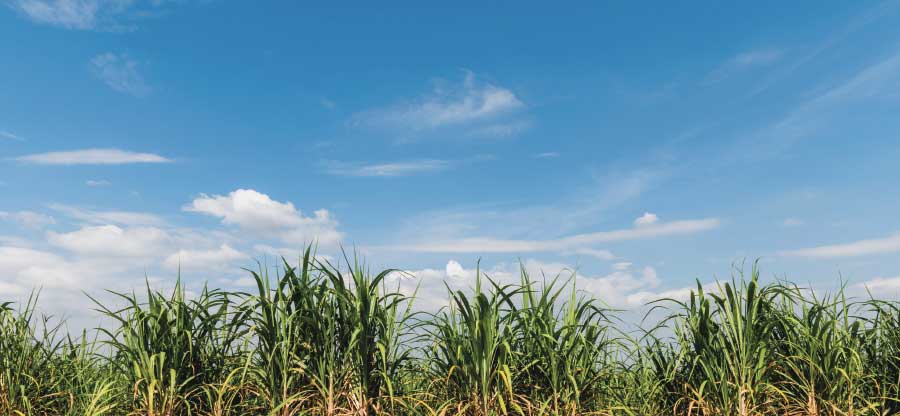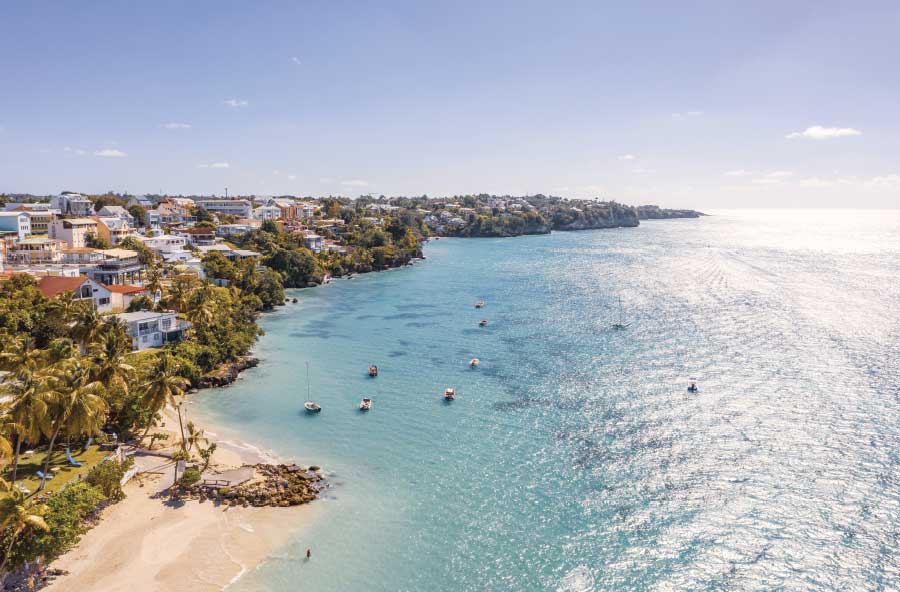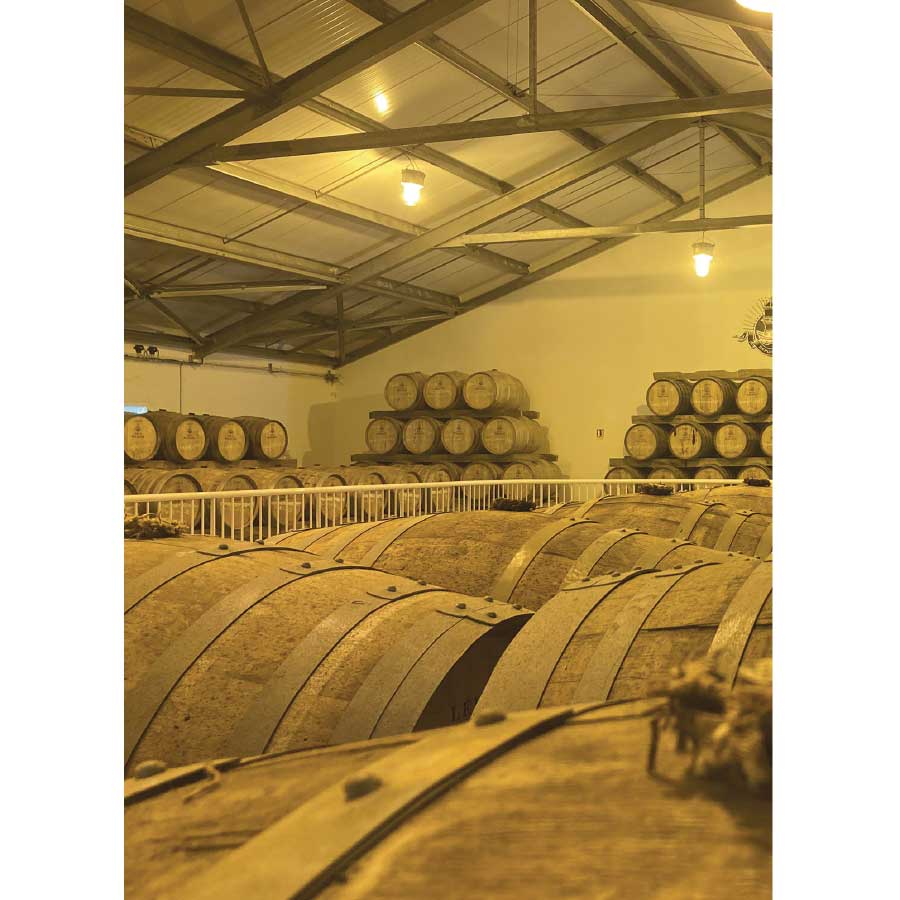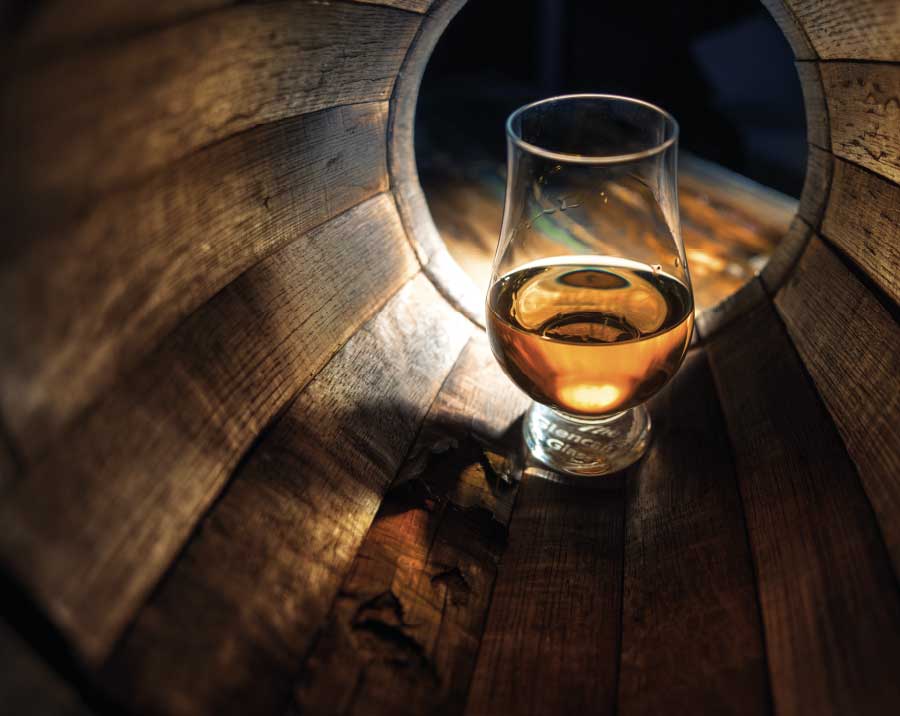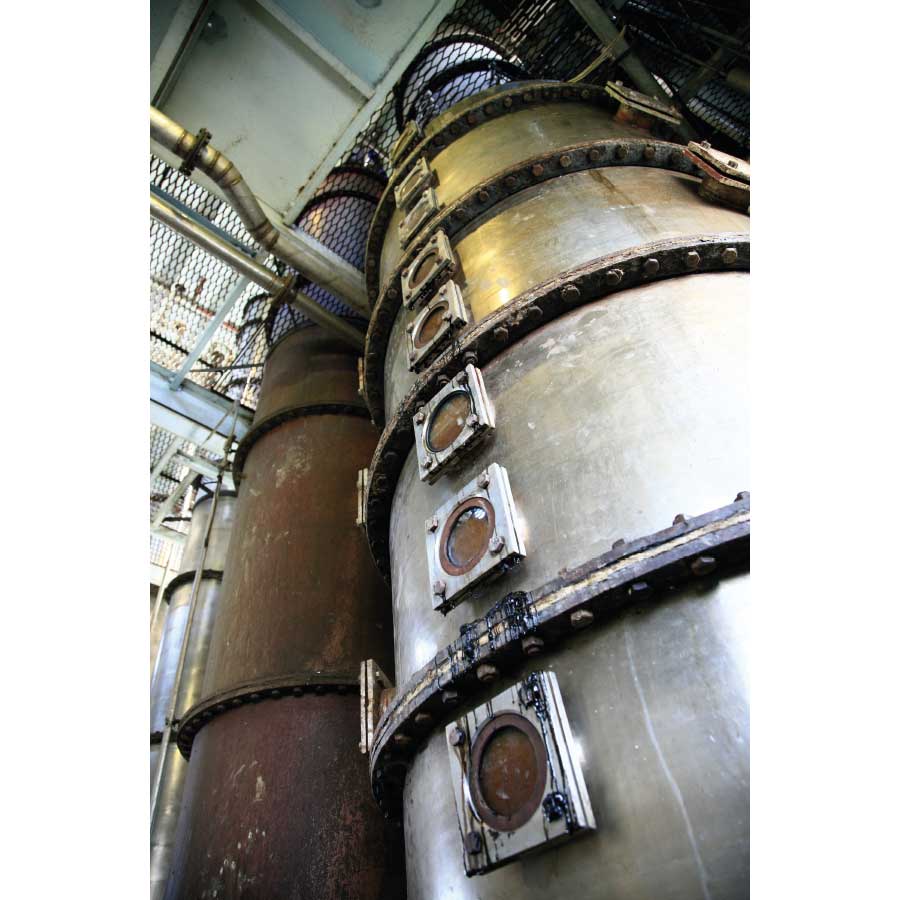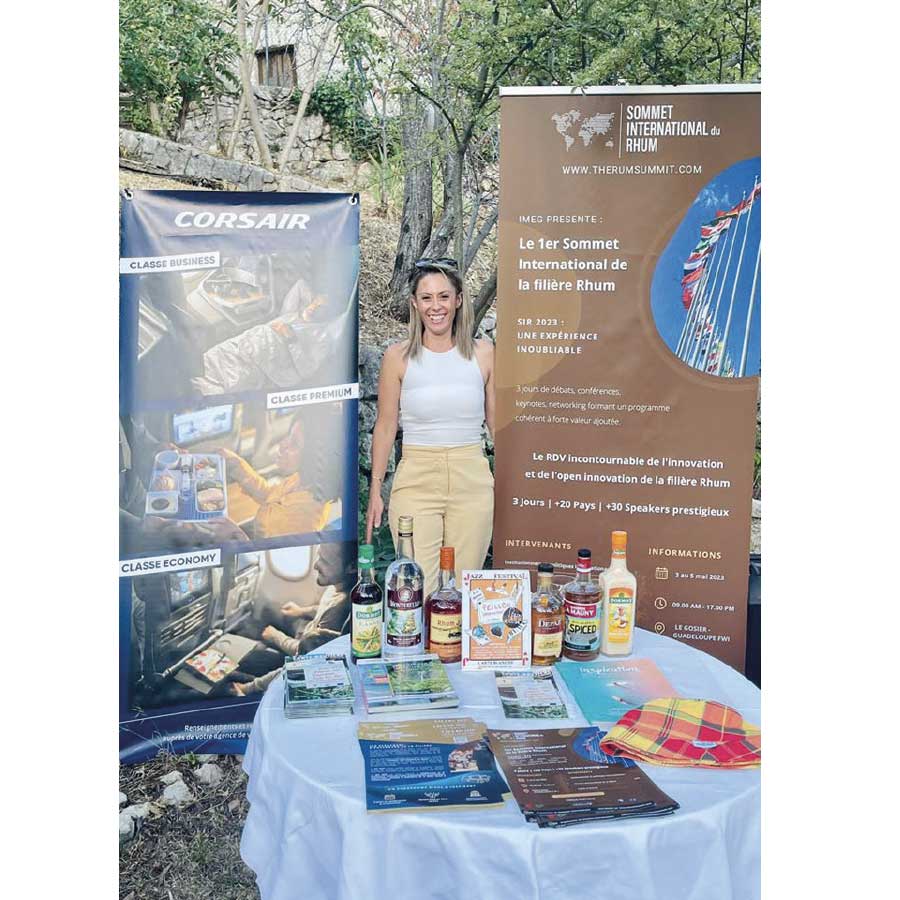Rum is finally going to have its international summit. Be careful, this is not the umpteenth trade fair or competition, but a summit. In other words, an event that aims to bring together the entire rum industry ecosystem, from sugar cane to bottling, from young people in the French overseas territories interested in a career in rum to the highest national and international authorities. Rumporter is a partner in this summit, which will be held in Guadeloupe in May 2023. Interview with Patrick Loger, promoter of the Salon International du Rhum (SIR)
What is the SIR?
Patrick Loger: This is the very first international summit for the rum industry. There are already many events (trade fairs, competitions, etc.) that promote the rum product as such. Our aim with this summit is to highlight the sector, to explain why and how rum is expanding so much around the world and to try to think about its future. We are therefore going to organise conferences, keynotes, debates and workshops that will contribute to these reflections.
Who will participate?
The players in the sector, i.e.: representatives of public bodies and institutions from rum-producing countries (more than 20 producing countries are expected), producers from the overseas territories and, in addition, more than 30 speakers, influencers, media, international buyers and the various companies that make up the rum ecosystem today (bottle, barrel and yeast manufacturers, etc.).
In all, 1,000 participants per day will represent the heart of the sector in Guadeloupe, during the SIR. We also want to highlight the innovative character of the sector, through the participation of startups from overseas, France and abroad. They will come to present their innovations, which make rum the second most consumed spirit in the world today.
How will it work in practice?
The summit will take place over three days, on 3, 4 and 5 May 2023, from 9am to 5pm. Several highlights are already planned. For example, Japan will be present and will explain how in 30 years this country has managed to become one of the main whisky countries.
Champagne will also be represented as the spearhead of French luxury.
These are two avenues of development to be followed for rum from the French overseas territories. Alongside the thirty or so international speakers, there will also be renowned mixologists, since the development of rum, particularly in Asia (Hong Kong, Singapore), depends on mixology.
The metropolitan rum industry will also be present, as it is in full development. Sugar cane is even being planted in Corsica, Sicily, Spain and Germany. Rum is exploding and countries that traditionally had no historical link with rum are becoming producer countries.
Faced with this real trend, it would be a shame if our overseas territories, which are historically and culturally linked to this sector, did not find their place in the colossal expansion that rum is undergoing today.
In your opinion, is there a risk that overseas rums will not benefit from this rum craze?
Yes, it should be noted, for example, that a brand produced in the Virgin Islands, Captain Morgan, is experiencing the strongest growth in terms of sales. It is now ranked second in terms of the number of bottles sold in a year (2021). We are also seeing more and more competitions springing up around the world, awarding medals to international brands.
Recently, the San Francisco World Spirits Competition named a spiced rum from Quebec the best in the world! Even countries that do not have a great rum tradition or culture can win medals and create a buzz. With the multiplication of these competitions, the risk of confusion increases.
The question remains today: what credit should be given to these numerous awards? Is there not a risk that overseas rums will be diluted in this magma of competitions and this profusion of medals? Within the SIR, we are going to organise a conference on the reliability and scope of all these competitions.
Will the SIR organise its own competition?
This is not one of the objectives of the SIR. The SIR is neither a trade fair nor a competition, it is a summit which puts forward the sector as a whole and not only the finished product. On the other hand, according to the different spheres of the SIR, during the gala dinner, awards will be given to reward and encourage the bearers of initiatives.
What themes will be addressed during the summit?
The SIR is organised around 4 main spheres.
The French and International Public Policy sphere, led by Coriolink, where political figures from around the world will share their views on the evolution of rum.
The Business sphere, led by Business France, will explore the opportunities and trends in the business sector, from the harvesting of the cane to marketing.
There will also be a focus on innovation, as this is a very important subject for us. This sphere is supported by Crédit Agricole, through Village by CA, a system of innovation accelerators for companies and start-ups in the regions. We are going to review all the innovations that can be applied to the rum industry, whether it is yeast, artificial intelligence, packaging, etc.
That discussions between players lead to solutions for creating companies during the summit is one of our objectives. Why not set up our own bottling and packaging structures? This would lower costs and create jobs. Finally, there is the education sphere, which will highlight the training available in the overseas territories and in mainland France. It will be supported by the Centre de recherche en économie et en droit du développement insulaire (CREDDI) of the University of the West Indies. And in a transversal way, Pôle Emploi will highlight all the prospects and job opportunities in the sector for young and old alike.
On the last day of the SIR 2023, the actors of the sector will be able to present their know-how to the population. In addition, a bridge will be built between the rum culture on the one hand and the pictorial, sculptural and photographic cultures on the other.
Young people will therefore be present alongside the institutions, producers, bankers, etc.?
The idea is also to enable the young generations in the French overseas territories to discover and take ownership of this sector, which creates jobs and value. It’s the whole ecosystem, from the cultivation of sugar cane itself, to the marketing of brands, through distillation, ageing, distribution… That’s why at least 30 young people per overseas territory (entrepreneurs, trainees, employees…) will be present.
You mentioned the issue of training, can you tell us more?
The issue of training is crucial. If we want the younger generations from the French overseas territories to be able to work in the rum industry, from the field to marketing, they must have access to knowledge, skills and courses in the region. Until now, they were obliged to go to Metropolitan France or abroad for training.
There, more and more business schools and universities are making room for spirits and rum in their wine courses. In the West Indies, this is less the case. But things are moving in the right direction. For example, ASFO Guadeloupe has just opened a Bachelor’s degree in marketing and sales of wines and spirits in Pointe-à-Pitre, with an 80% focus on rum. They will thus be able to train locally for jobs such as cellarmen, entrepreneurs, salesmen, or even sommeliers…
For the industry, the challenge is to have a pool of young people trained in the specificities of overseas rums, who will then be able to better explain and sell them on national and international markets. We are already in contact with the Centre International des Spiritueux in Charente, the Université du Rhum in Guadeloupe, the Mission Locale de Guadeloupe and the GRETA.
Will there be an environmental component?
We are going to talk about agriculture, through the innovation of processes that allow us to have a clean and environmentally friendly agriculture. As far as organic farming is concerned, the issue will be addressed with a view to harmonising criteria at European and international level. Let’s avoid the trap of punitive organic farming.
What is the status of your relations with the ministries?
We are in contact with the various ministries concerned, namely: the Ministry of Overseas France, the Ministry of Employment, the Ministry of Agriculture, the Ministry of Education, the Ministry of Research, the Ministry of Cooperation and Foreign Affairs. Of course, the Interministerial Delegate for Equal Opportunities supports us. I even had a very positive meeting with François de Kerever, President Emmanuel Macron’s Overseas Advisor, at the Elysée Palace! We are also in contact with representatives of the European Community. This is an international summit, so government delegations from producer countries are also invited.
Why did you choose Guadeloupe to host this first International Rum Summit?
In terms of infrastructure, particularly hotels and airlines, Guadeloupe is well suited to the task. In addition, the Gosier town council is making the town’s Palais des Sports et de la Culture available to us. We have the support of all the elected representatives of the French overseas territories, and in particular those of Guadeloupe, which is hosting the summit.
Will there be other editions?
It is not possible to cover all the problems of the rum industry in one edition. This is not a one-off event, the SIR is scheduled to be held every two years. The SIR 2023 has not yet taken place… and we have already been invited by two countries to organise the next one: Cuba and the Dominican Republic. This is very encouraging, but first let’s try to make the first summit in Guadeloupe a success and then we’ll see.
May 2023 is a long way off! What are your plans between now and then?
Between now and May 2023, we are going to present the SIR 2023 in several countries and organise highlights, such as the one in New York in March 2022, Guadeloupe in May 2022. We are preparing the official announcement in November in Paris, as well as a tour of the various overseas territories. We will respond to invitations from trade shows, competitions and jazz festivals in particular.
Of course, throughout this period, we will be implementing a communication plan dedicated to all the players in the sector, whether local, national or international. We are finalising the partnership files and the file for the SIR 2023 exhibitors’ village. In addition, we are continuing our exchanges with the various ministries concerned. We already have the pleasure of registering participants from different countries.
You also talk a lot about the notion of transmission… how does that work in practice?
Indeed, the aim is to pass on to the younger generations all the tools that will enable them to ensure the succession and the sustainability of fundamental activities. Many young people have already joined the SIR team.

Among them, Manuela Hernandez, as project manager. After studying at the ISC Paris, she created l’Echanson, a personal wine shop dedicated to rum. It is with profiles like hers that the future of the SIR will be written!


